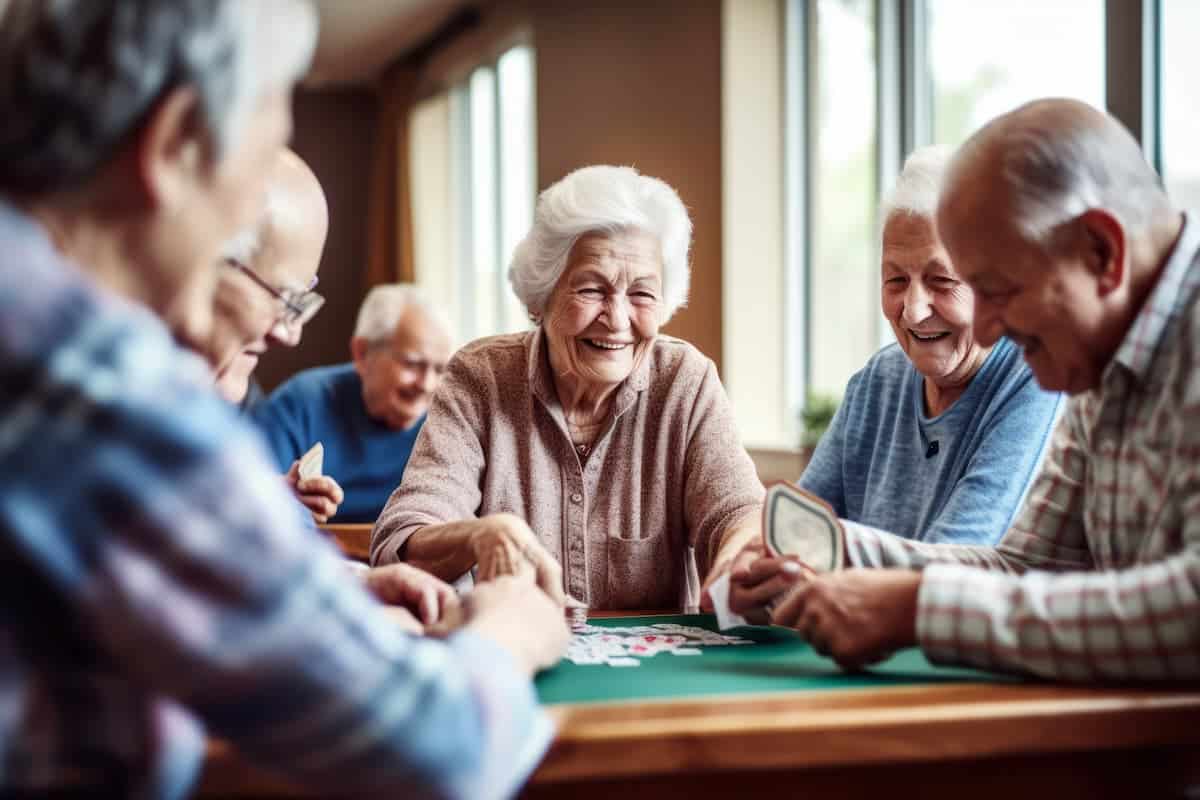Understanding the Mental Health of Older Adults in Alaska
Depression affects people of all ages, but depression in senior citizens is more common than many realize. In Alaska, the dark winters and isolation contribute to a rate of one in five residents reporting feelings of depression.

According to the National Institute of Mental Health (NIMH), about 61 percent of American adults experienced depression in 2021. Nearly five percent of that figure came from adults over 50.
Seniors often face unique challenges that can contribute to feelings of sadness and hopelessness. Recognizing the signs of senior depression and understanding its causes are crucial steps in helping our loved ones lead happier, healthier lives.
Common Causes of Depression in Seniors
There are several reasons why depression in older adults might be more prevalent:
- Illness: Chronic conditions such as heart disease, diabetes, Parkinson’s, and Alzheimer’s can lead to feelings of despair and depression.
- Diminished Physical Mobility: Loss of physical abilities can be frustrating and isolating.
- Decreased Connection with Loved Ones: As friends and family members move away or pass on, seniors may feel increasingly isolated.
- Loss of Spouse or Friends: Grieving the loss of close companions can lead to prolonged sadness.
- Lack of Sunshine: In regions like Alaska, long, dark winters can contribute to seasonal affective disorder (SAD), exacerbating feelings of major depression.
Symptoms of Senior Depression
Depression in seniors can sometimes be hard to diagnose because its symptoms can mimic those of other medical conditions or be mistaken for signs of aging. Here are some common symptoms:
- Persistent Sadness or Feelings of Hopelessness: Seniors may feel down most of the time and unable to see a way forward.
- Aches and Pains: Unexplained physical pain that doesn’t seem related to a specific illness or injury.
- Memory Problems: Difficulty concentrating or remembering things.
- Chronic Anxiety and Worrying: Feeling anxious or worried without a clear cause.
- Irritability: Becoming easily annoyed or frustrated.
- Neglect of Personal Care: Seniors might stop maintaining proper personal hygiene, eating properly, or taking medications as prescribed.
- Loss of Interest in Activities: No longer finding joy in hobbies or social interactions they once enjoyed.
- Increased Use of Alcohol: Turning to alcohol or other substances as a way to cope with feelings of sadness.
Challenges in Diagnosing Depression in Seniors
Diagnosing depression in seniors can be challenging for several reasons:
- Stigma Around Mental Health: Many older adults grew up in a time when mental health issues were not widely discussed or understood.
- Overlapping Symptoms with Dementia: Depression and dementia can share symptoms like memory problems and lack of motivation, making it hard to distinguish between the two.
- Medication Side Effects: Some medications used to treat physical health conditions can cause depressive symptoms.
- Misinterpreting Grief for Depression: Grief from losing a loved one can resemble depression but is a different process.
Eight Ways to Combat Senior Depression
Understanding that depression in seniors is more common means we can take steps to help our loved ones combat it. Here are some strategies:
1. Establish Daily Routines
Having a structured daily schedule helps seniors stay organized and gives them a sense of purpose. Include time for chores, medications, appointments, social activities, and relaxation.
2. Stay Physically Active
Regular exercise is crucial. Activities like walking, swimming, or even yoga can improve mood and overall health. Before starting any new exercise regimen, it’s essential to consult with a doctor.
3. Engage in Mental Activities
Keeping the mind active is just as important as physical activity. Encourage seniors to read, do puzzles, play games, or take up hobbies that challenge their brains.
4. Promote Social Interaction
Isolation can worsen depression. Help seniors stay connected by encouraging participation in social activities, whether through community centers, clubs, or family gatherings.
5. Ensure Proper Nutrition and Hydration
Healthy eating is vital for physical and mental well-being. Ensure seniors have access to nutritious meals and stay hydrated. Foods rich in omega-3 fatty acids, vitamins, and minerals can help boost mood.
6. Maintain a Sleep Schedule
Adequate sleep is crucial for emotional health. Encourage seniors to get 6-8 hours of sleep each night and consider short naps if needed to stay refreshed.
7. Manage Medications
Ensure that seniors take their medications as prescribed and understand any potential side effects. Using a pill organizer and maintaining a medication calendar can help.
8. Seek Professional Help
If symptoms of depression are severe, it’s important to seek professional help. Therapy and medication can be effective treatments. Encourage your loved one to talk to their doctor and consider seeing a mental health professional.
Assisted Living and Depression
Moving into an assisted living community can provide the social interaction and oversight needed to combat depression. These communities offer structured activities, social events, and opportunities for companionship that can significantly improve a senior’s quality of life.
Memory care communities are also excellent resources for providing loved ones with purposeful socialization and activities.
Depression is Not A Normal Part of Aging
Depression in senior citizens is more common than many people think, but it is a treatable condition. By recognizing the signs and taking proactive steps, we can help our loved ones enjoy their later years with joy and fulfillment.
If you notice signs of depression in a senior, encourage them to seek help and consider the benefits of assisted living communities designed to support their mental and emotional well-being.
Contact Baxter Senior Living To Curb Senior Depression
For more information on Anchorage senior housing and assisted living options to increase socialization, contact Baxter Senior Living. We’re here to help!

